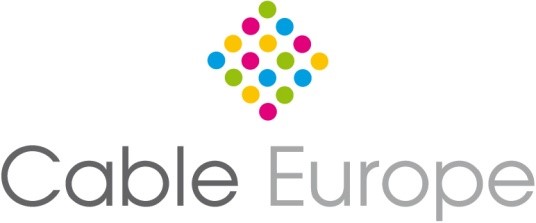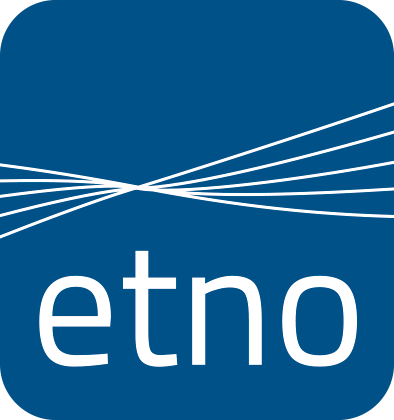28 October, 2014
Press release: Joint Statement: Intellectual Property Rights Enforcement
 |  |  |
  | ||
Our Associations, Cable Europe, ECTA, ETNO, EuroISPA and GSMA Europe represent the European electronic communications and Internet industry that is comprised of both national and pan-European fixed and mobile telecoms operators, Internet Services Providers (ISPs) and cable companies. Our industry plays a crucial part in connecting European citizens and businesses to information, news, entertainment and cultural content. In the context of ongoing discussions of the Working Party on Intellectual Property on the Intellectual Property Rights Enforcement Directive (Directive 2004/48/EC) and in view of the upcoming Competitiveness and Growth Council, our Coalition takes this opportunity to restate our long-standing position on this topic and to outline views on the way forward, for your consideration. SUPPORT FOR CURRENT EUROPEAN FRAMEWORK ON INTELLECTUAL PROPERTY RIGHTS ENFORCEMENTThe intermediaries represented by the five Associations recognise the need for rights-holders to receive fair remuneration. To achieve this goal, we consider it very important to tackle IP infringement with due legal process and judicial oversight. We are of the opinion that the current enforcement Directive is fit for this purpose, as it offers a well-balanced and efficient framework for rights-holders to enforce their rights and intermediaries to play their respective part. LACK OF EVIDENCE THAT DIRECTIVE 2004/48/EC NEEDS REVISIONAt this stage, the quantitative data and qualitative information at our disposal show that the current IPR enforcement framework is still fit for purpose in the digital age. This conclusion has been also shared by the European Commission, who decided not to reopen the Directive on Intellectual Property Right Enforcement as experience in applying the Directive is limited, due to the late transposition in several Member States[1]. The EU Institutions should therefore focus on identifying best practices and strengthening the efforts towards the harmonised implementation of the existing rules rather than pushing for their revision. CALL FOR SUPPORT OF THE COMMISSION’S ACTION PLANConsistency in the transposition of the Directive is indispensable to deliver a true Digital Single Market. This was the reason why the Commission decided instead to complement the current legislation. The EU Action plan on the enforcement of intellectual property rights is the most recent initiative which allows Member States and relevant stakeholders to address specific issues raised by the implementation of the IPRED Directive. In this context, it is important to highlight several initiatives launched by the Commission and the relevant stakeholders in this field, such as the consultation with stakeholders including civil society on applying due diligence throughout supply chains as a means to prevent commercial scale IP infringement. The dialogue on "Follow the Money" foreseen by the Action plan, clearly demonstrates that the definition of intermediary in the Directive (involving among others advertising service providers, payment services and shippers) is sufficiently broad to contribute to the reduction of the profits stemming from commercial scale IP infringements in the online environment. Another concrete example is the Memorandum of Understanding on the Sale of Counterfeit Goods via the Internet, which was signed in 2011, and which gathered a representative group of leading right holders and Internet platforms in a joint effort to reduce the sale of counterfeits via e-commerce platforms[2]. All these voluntary initiatives are better suited for the fast-evolving nature of the digital environment. CONCLUDING REMARKSFor the reasons mentioned above, we believe that the Council needs to support the work started by the European Commission in the framework of the EU Action plan on Intellectual Property Rights instead of promoting the revision of the Directive 2004/48/EC. The current regime has proven to be generally a well-balanced one into which courts all over Europe as well as the Court of Justice of the European Union have invested a great deal of resources, in order to strike the right balance on a case-by-case case basis. Starting with a new legislation may thus jeopardize the achievements made so far, generate legal uncertainty and may cause us to start all over again. In addition, we believe that a more holistic approach is necessary with a focus on how to meet consumer demand by increasing the availability and the consumption of a legal, innovative and affordable legal offer, based on business models adapted to the Internet. Repressive legislation may also be counterproductive as it would maintain barriers to trade that are the real obstacle to the creation of a truly European Digital Single Market. Finally, our industry remains at your disposal for a fruitful future cooperation in the area. The contributors to this joint statement are:Cable Europe (www.cable-europe.eu), the European Cable Communications Association, is based in Brussels and groups all the leading European cable TV operators and their national trade associations throughout Europe. The aim of Cable Europe is to promote and defend the industry’s policies and business interests at European and international level. The European cable TV industry provides digital TV, broadband Internet and telephony services to more than 76 million customers. Contact: Gilone d’Udekem (Director Regulatory Affairs), email: gilone.dudekem@cable-europe.eu, +32 25562101. ECTA (European Competitive Telecommunications Association - www.ectaportal.com) is the pan-European pro-competitive trade association that represents over 100 of the leading challenger telecoms operators across Europe. For over a decade, ECTA has been supporting the regulatory and commercial interests of telecoms operators, ISPs & equipment manufacturers in pursuit of a fair regulatory environment that allows all electronic communications providers to compete on level terms. Our members have been the leading innovators in Internet services, broadband, business communications, entertainment and mobile. Contact: Inês Nolasco, Senior Regulatory Affairs Manager, inolasco@etaportal.com, +32 2 290 01 03. ETNO (the European Telecommunications Network Operators' Association - www.etno.eu) is the voice of the European telecommunications network operators with over a decade of experience in shaping EU telecoms policy. The association represents 41 companies located in 35 European countries. They account for an aggregate annual turnover of more than 250 billion Euros and employ over one million people across Europe. Contact: Caroline Greer, Public and Regulatory Affairs Manager, greer@etno.be / + 322 2271083. EuroISPA is the world’s largest association of Internet Services Providers (ISPs) representing the interests of more than 2300 ISPs across the EU and the EFTA countries. EuroISPA is a major voice of the Internet industry on information society subjects such as cybercrime, data protection, e-commerce regulation, EU telecommunications law and safe use of the Internet (www.euroispa.org). Contact: Andrea D’Incecco, Head of Policy, andrea@euroispa.org , +32 2 503 22 65. The GSMA represents the interests of mobile operators worldwide. Spanning more than 220 countries, the GSMA unites nearly 800 of the world’s mobile operators with 250 companies in the broader mobile ecosystem, including handset and device makers, software companies, equipment providers and Internet companies, as well as organisations in industry sectors such as financial services, healthcare, media, transport and utilities. The GSMA also produces industry-leading events such as Mobile World Congress and Mobile Asia Expo. For more information, please visit the GSMA corporate website at www.gsma.com. Follow the GSMA on Twitter: @GSMA. Contact Dagmar Baer, Policy and Programme, Advisor Mob. +44 (0)7827 35.11.66. [1] “due to late transposition of the Directive in many Member States (the transposition process was not completed until 2009) experience in applying the Directive is limited and only few court cases have been reported” http://eur-lex.europa.eu/legal-content/EN/TXT/PDF/?uri=CELEX:52010DC0779&from=EN [2] Memorandum of Understanding, 4 May 2011 Brussels http://ec.europa.eu/internal_market/iprenforcement/docs/memorandum_04052011_en.pdf | ||

